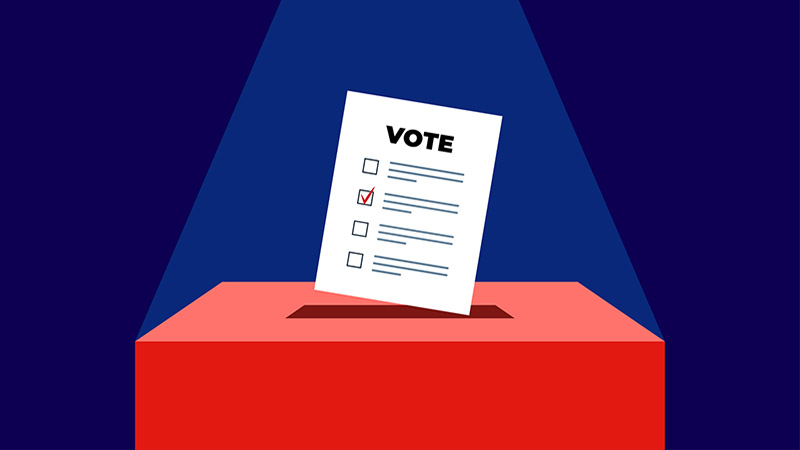By Darius McDermott, managing director of FundCalibre
2024 is a year for democracy like no other. Elections will take place in a record 50 countries around the world, with more than 2 billion people heading to the polls to make their voices heard.
Changes in governments can herald both welcome and unwelcome switch ups for citizens and investors. The World Economic Forum found in a recent study that most people expect “upheavals at a global scale” in 2024, and are wary of a growing “adversarial” trend in international relations, which could be exasperated depending on the leader.
Fund managers have mixed views on the macro impacts on portfolios, and some investors will hold back on decisions until they have a clearer picture about which party is likely to take power and the policies they’ll pursue.
All of the scheduled elections are important in their own way, but we believe the three big ones are the US in November, India in April/May, and the UK, which is expected late this year (though it could technically be stretched until January 2025).
United States
Historical data shows that when the S&P is up in the January of an election year, the index has been up 100% of the time (of 11 times) for both the year and the rest of the year, with average returns of 16.6% and 12%, respectively. The S&P 500 surpassed an all-time high of 5,000 earlier this month.
It looks set to be a Trump-Biden rematch. Trump is very weak among independents which could be tricky for him come election time, but right now, markets are seemingly unconcerned either way. Trump might be the markets’ preference if tax cuts are on the table, yet people might also worry about the threat he poses to democracy, which from an investor’s point of view is a frightening risk.
Rajiv Jain, manager of the GQG Partners US Equity fund, said that while macro filters on events like elections remain “a useful risk-management tool”, 2023 showed “how tricky an entirely top-down process can be, given the myriad of mixed signals globally”.
“We tend to find that elections, while certainly not risk free, tend to be relatively fleeting factors that create a lot of noise in the short run,” he said.
Jain’s view is that regardless of election outcomes – in the US or abroad – “opportunities across sectors such as information technology, given strong strides in AI, or energy, given government policy and a relative tight supply backdrop moving forward, remain attractive”.
India
India is the biggest democracy in the world and is set to be the third largest economy by 2030. There is a lot of excitement in and around the country as its people get richer and feel more positive about life. From the elections we expect a strong result for incumbent Prime Minister Narendra Modi, and a continuation of his pro-business stance and infrastructure spending.
Ayush Abhijeet, adviser to the Ashoka India Equity Investment Trust, points out that India is a “potential multi-decade growth opportunity” for investors, as per capita incomes rise, precipitating a growing number of new consumers. On top of that, there is the rapid digitalisation of services, supported by increasing internet penetration and ongoing structural reforms. At the same time, the government is undertaking steps to indigenise manufacturing.
Even if there was a change in power, “many of the changes PM Modi’s government has overseen would be very difficult to undo,” Abhijeet added. “Nor would it be in the interest of a new government to hinder them, given the aspirations and expectations of a young, intellectual and vibrant population.”
United Kingdom
According to a poll at the end of January, Labour is predicted to take 42% of the vote at the next election, versus 27% for the Conservatives.
Hopes are that Keir Starmer could build a closer relationship with Europe that would be good for business, which is currently pretty fed up with the Tories. That said, if Labour comes in with a big majority, and the left of the party wrests control, markets would see that as a risk.
British companies have significant global exposure, diluting the impact from domestic politics. Richard Hallett, manager of IFSL Marlborough Multi Cap Growth fund, pointed out that “while we invest primarily in UK-listed companies, they’re ‘best in breed’ businesses that tend to be global players, so our exposure to the UK economy is relatively limited, with less than 25% of the earnings of our portfolio companies generated in the UK”.
The fund tends to have very limited exposure to cyclical sectors such as construction, commodities and banking, that are more sensitive to political and shorter-term economic influences.
“But uncertainty can also influence global investors, who may delay decisions about allocating capital to the UK, which can in turn have an effect on the strength of sterling,” Hallett added.
The Allianz UK Listed Opportunities fund is also focused on fundamentals, but manager Richard Knight says macro events like elections “are relevant, often because the market can overreact to short-term factors and create opportunities to buy good companies at excellent prices”.
As value-driven investors, the price paid is an important input into Knight’s process, and low prices and an upset stock-market can provide significant opportunities. But he expects stability, especially versus the 2019 election, when the market was concerned about the potential investment impacts of a hard-left Labour government.
“For the election likely in 2024, the policy platforms of the Conservatives and Labour are much more closely aligned. The upcoming election presents a much less material risk, and could even provide a significant tailwind if the result is deemed to facilitate a period of political stability – following five conservative Prime Ministers in the past eight years – and consistency in economic policy,” he said.










